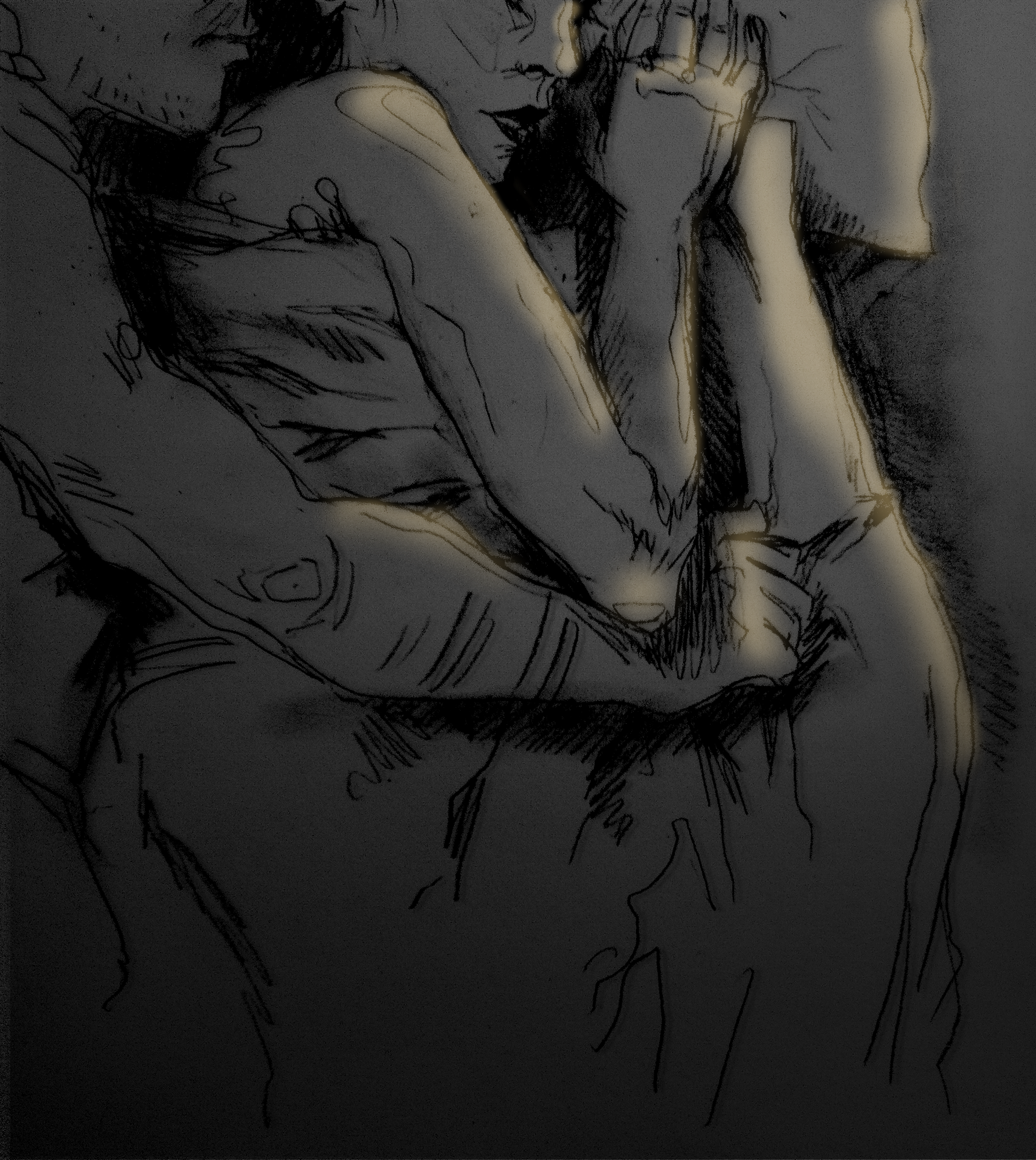
News
Cambridge Residents Slam Council Proposal to Delay Bike Lane Construction

News
‘Gender-Affirming Slay Fest’: Harvard College QSA Hosts Annual Queer Prom

News
‘Not Being Nerds’: Harvard Students Dance to Tinashe at Yardfest

News
Wrongful Death Trial Against CAMHS Employee Over 2015 Student Suicide To Begin Tuesday

News
Cornel West, Harvard Affiliates Call for University to Divest from ‘Israeli Apartheid’ at Rally
This Column is Experimenting
Wading the mysteries of hookup culture

When I said the term “hooking up” to an older friend, he thought I was talking about fishing. I told him it was basically the same thing, but you don’t pull a fish into shore via a hook on the mouth. Rather, you hook two together by the mouth and let them flap about for a bit.
Understandably, for those who hear about hookup culture for the first time, it warrants strange reactions. My friend’s response—silence for 35 awkward seconds—was fairly mild. In the media, there are usually two, fiercer types. One says (I’m paraphrasing), “Stop! Stop! Why are you fucking—I mean fudging—well I guess I mean fucking—around like that?!?” The other says, “It allows both sexes to experiment and have fun on an equal playing field.”
But what most writing on the subject overlooks is that hookup culture affects people on a more individual level than most issues on college campuses, which makes it hard to evaluate on any large scale. The truth is, hooking up is good or bad depending on who you are and where you’ve been (that’s as literal as you want it to be).
As a Crimson columnist, I’m the voice of our generation, describing my observations and arguing points in elegant prose that give rise to great social change. I’m also good at table tennis. But instead of making generalizations this time, I just want to point out a few things. Describe what I’ve heard. Then you can put it together if you want and respond individually. It’ll be odd. But try not to read too much into it. This column is just experimenting.
Billie-Jean: “Thanks for that last night.”
The term “hookup culture” started popping up around the year 2000. But people at Harvard and elsewhere have been hooking up for much longer than that. Members of the class of 1981 and 1987 told me that people back then hooked up at parties but dated as well. So what’s changed to create a full-on “hookup culture?”
A study, yet to be published, from the University of Portland found that undergraduates from 2002-2010 (the “hookup era”) have actually been having less sex with fewer partners than students from 1988-1996. The key difference is actually that the hookup era students have sex with friends, pickups, and casual partners more frequently and choose to have longer term sexual partnerships (with more frequent sex) less frequently. So hookup culture is defined not by how much sex we are having, but who we are having it with, despite conservative outcries.
Jesse: “Np.”
According to APA research, humans are hitting puberty earlier and marrying later. Thus one explanation for the rise in hookup culture is students’ earlier biological readiness for sex but later psychological readiness for settling down. However, these are broad changes. And this cultural shift is more sudden. Thus, while some today are prepared to hookup, some must be left behind.
Billie-Jean: “Quick quiz: what’s my name?”
The American Psychological Association found that people, after hooking up, are generally glad they did it. And many female students say that it is freeing not to have to think about significant others, which can feel like the time commitment of another course. And some even argue that hookup culture empowers women. There is one major downside for both genders though: sex with a hookup is just worse. A large online survey found that the orgasm rate in hookups is 44% for men and 19% for women. In relationships, that rate is 85% for men and 68% for women.
Jesse: “Bj?”
There are reasons against thinking that hookup culture empowers women. Men initiate hookups more often and are typically less interested in a romantic relationship. Also, among women who experience unwanted sex in college, 70 percent do so in the context of a hookup. Finally, one study found that only 4.4 percent of men and 8.2 percent of women in hookups expected a traditional romantic relationship as an outcome, while 29 percent of men and 42.9 percent of women wanted such an outcome. Thus, the desires of men are more often satisfied than of those of women, casting doubt on whether such a system is empowering to women at all.
And hookup culture is exclusive. According to a survey of relevant academic literature popularized by a July write-up in Slate, only 14 percent of students hookup more than 10 times in college. These students are more likely to be white, well-off, able-bodied, straight, and attractive. One example is that African-American students are less likely to participate in hookup culture because of stereotypes of African-Americans as more sexual than other races. Sociological studies claim that black students feel a need to fight that perception by not hooking up. So if hookup culture has become a healthy norm to some, it is an impossible or hurtful norm to others.
Billie-Jean: “…gotta change my initials.”
As pervasive as hookup culture is, it’s not mandatory. Four out of ten students are still virgins coming out of college and three out of ten have never hooked up. While relationships can be harder to find, they are still around—for both genders and all sexualities. And those that do engage in hooking up don’t stay that way and certainly don’t plan to.
Jesse:“?”
So is hookup culture fun exploration or bodily exploitation?
Billie-Jean: “lol.”
Dashiell F. Young-Saver ’16, a Crimson editorial writer, is an English concentrator in Winthrop House. His column appears on alternate Wednesdays.
Want to keep up with breaking news? Subscribe to our email newsletter.
